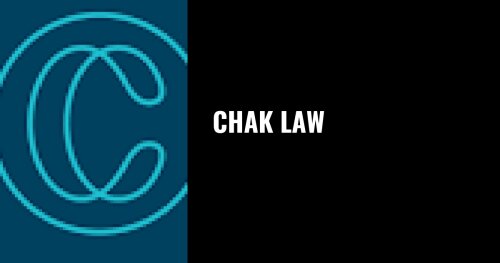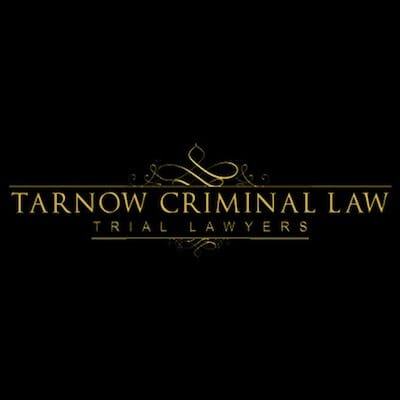Best Drunk Driving Lawyers in Richmond
Share your needs with us, get contacted by law firms.
Free. Takes 2 min.
List of the best lawyers in Richmond, Canada
About Drunk Driving Law in Richmond, Canada
Drunk driving, known in legal terms as impaired driving, is considered a serious criminal offense throughout Canada, including Richmond, British Columbia. Impaired driving involves operating a motor vehicle while your ability is affected by alcohol or drugs. Laws are enforced strictly to protect public safety. Richmond, as part of the Metro Vancouver area, sees significant law enforcement efforts to deter and prosecute drunk driving. Being charged with impaired driving can have long-lasting personal, financial, and legal consequences.
Why You May Need a Lawyer
Facing a drunk driving charge can be a complex and stressful experience. A lawyer can provide critical assistance in many situations, including:
- When you are charged with impaired driving or driving over the legal blood-alcohol concentration limit
- If you are facing a roadside prohibition or administrative penalty
- When your driver's license is suspended or you risk losing your vehicle
- If you believe police procedures were not properly followed during your arrest or testing
- When you need to go to court or negotiate a plea deal
- If you want to fight a conviction or mitigate penalties
- When your job or immigration status is at risk because of the charge
- If you are a repeat offender or the incident involved an accident or injury
Lawyers experienced in impaired driving cases can review the evidence, explain your rights, and provide guidance on your best defense strategies.
Local Laws Overview
Drunk driving laws in Richmond are governed by both federal and provincial legislation. The Canadian Criminal Code establishes impaired driving as a criminal offense nationwide, while British Columbia’s Motor Vehicle Act addresses administrative penalties.
- The legal limit for blood alcohol concentration (BAC) is 80 milligrams of alcohol per 100 milliliters of blood (0.08 percent)
- British Columbia also enforces lower administrative limits known as the "warn range" (0.05 - 0.079 percent BAC) which can result in immediate roadside prohibitions
- Police can use roadside screening devices to test for alcohol and drugs
- Refusing or failing to provide a breath or blood sample is itself a criminal offense
- First-time offenders face heavy fines, license suspensions, and possible jail time
- Repeat offenders or those causing injury or death can face much harsher penalties, including mandatory prison sentences
- British Columbia's Immediate Roadside Prohibition (IRP) program allows police to issue driving bans and vehicle impoundment on the spot without court involvement in certain cases
It is important to be aware that both the criminal and administrative consequences can apply in one case, which makes the legal landscape challenging to navigate without professional help.
Frequently Asked Questions
What is the legal blood alcohol limit in Richmond, Canada?
The legal limit is 0.08 percent blood alcohol concentration, but you can face penalties for levels as low as 0.05 percent under provincial laws.
Do I have to provide a breath sample to police?
Yes, if you are legally required to provide a sample and refuse, you can be charged with a criminal offense that carries similar penalties to impaired driving itself.
What happens if I fail a roadside breath test?
Depending on your BAC reading, police may issue an immediate roadside prohibition, suspend your license, impound your vehicle, or arrest you for a criminal offense.
Can I lose my license for a first offense?
Yes, even for a first offense, you can lose your license temporarily or permanently depending on the circumstances and your BAC level.
How does British Columbia's Immediate Roadside Prohibition (IRP) work?
Police can issue a driving ban and seize your vehicle immediately at the roadside if your BAC is over 0.08 percent or if you refuse a test, even before your case goes to court.
What are the potential penalties for drunk driving?
Penalties can include fines, jail time, license suspension, mandatory rehabilitation programs, installation of ignition interlock devices, and a permanent criminal record.
Can I fight a drunk driving charge in court?
Yes, you have the right to defend yourself in court. A lawyer can help you challenge the evidence, police procedures, or negotiate a reduced charge.
Will a conviction affect my insurance rates?
Yes, insurance premiums typically increase significantly after a conviction, and you may have difficulty obtaining coverage.
Can I drive after an impaired driving charge?
Usually, you cannot drive while under a license suspension or prohibition. Driving while suspended is a further offense with serious consequences.
How long does a drunk driving conviction stay on my record?
A conviction remains on your criminal record permanently unless you apply for and receive a record suspension, formerly known as a pardon.
Additional Resources
- Richmond RCMP Detachment: The local police force provides information on enforcement and drunk driving laws
- BC Ministry of Public Safety and Solicitor General: Offers resources about drinking and driving, penalties, and the IRP program
- Legal Services Society of British Columbia: Provides free or low-cost legal information on impaired driving
- ICBC (Insurance Corporation of British Columbia): Information on insurance consequences and driver licensing
- MADD Canada (Mothers Against Drunk Driving): Educational materials and support for those affected by impaired driving
Next Steps
If you are facing a drunk driving charge or have received an administrative penalty in Richmond, consider the following steps:
- Write down everything you remember about your arrest or traffic stop as soon as possible
- Do not make any statements to police beyond identifying yourself until you have legal advice
- Contact a qualified lawyer experienced in impaired driving cases in Richmond
- Ask your lawyer about deadlines for disputing prohibitions or charges, as some appeal periods are very short
- Gather any documents or evidence that may support your case, such as witness information or video footage
- Attend all court dates and follow the conditions of your release to avoid further problems
- Use the resources listed above for more information and support
A lawyer will guide you through the process, explain the possible outcomes, and help you build the strongest possible defense for your situation.
Lawzana helps you find the best lawyers and law firms in Richmond through a curated and pre-screened list of qualified legal professionals. Our platform offers rankings and detailed profiles of attorneys and law firms, allowing you to compare based on practice areas, including Drunk Driving, experience, and client feedback.
Each profile includes a description of the firm's areas of practice, client reviews, team members and partners, year of establishment, spoken languages, office locations, contact information, social media presence, and any published articles or resources. Most firms on our platform speak English and are experienced in both local and international legal matters.
Get a quote from top-rated law firms in Richmond, Canada — quickly, securely, and without unnecessary hassle.
Disclaimer:
The information provided on this page is for general informational purposes only and does not constitute legal advice. While we strive to ensure the accuracy and relevance of the content, legal information may change over time, and interpretations of the law can vary. You should always consult with a qualified legal professional for advice specific to your situation.
We disclaim all liability for actions taken or not taken based on the content of this page. If you believe any information is incorrect or outdated, please contact us, and we will review and update it where appropriate.









